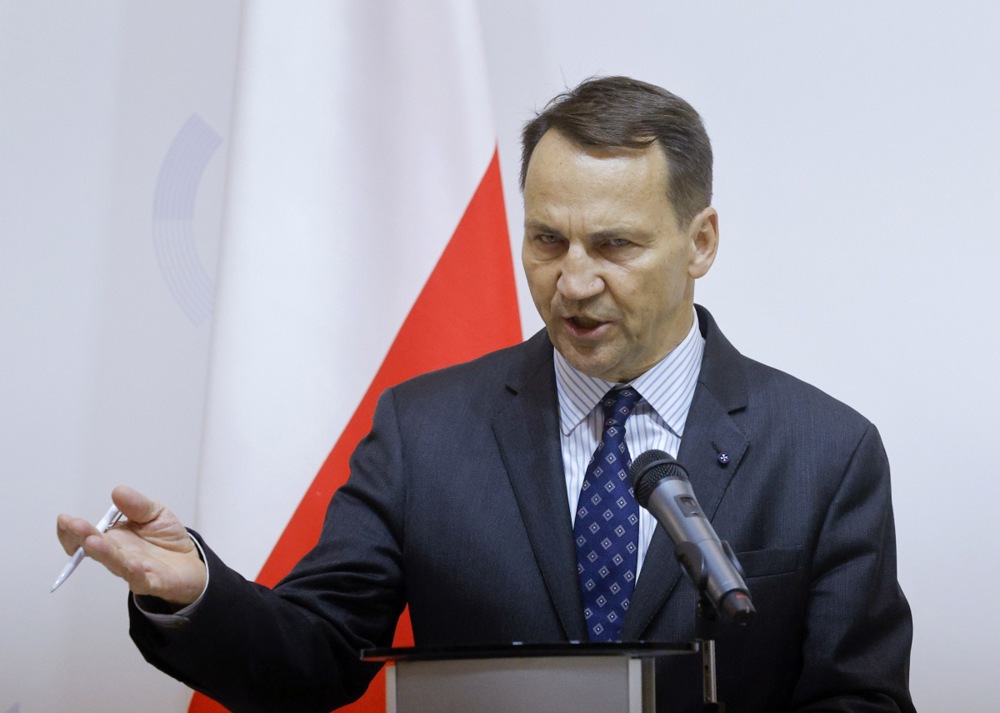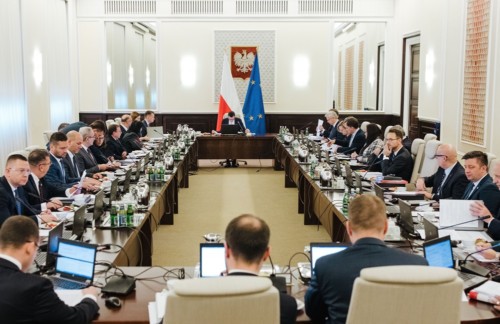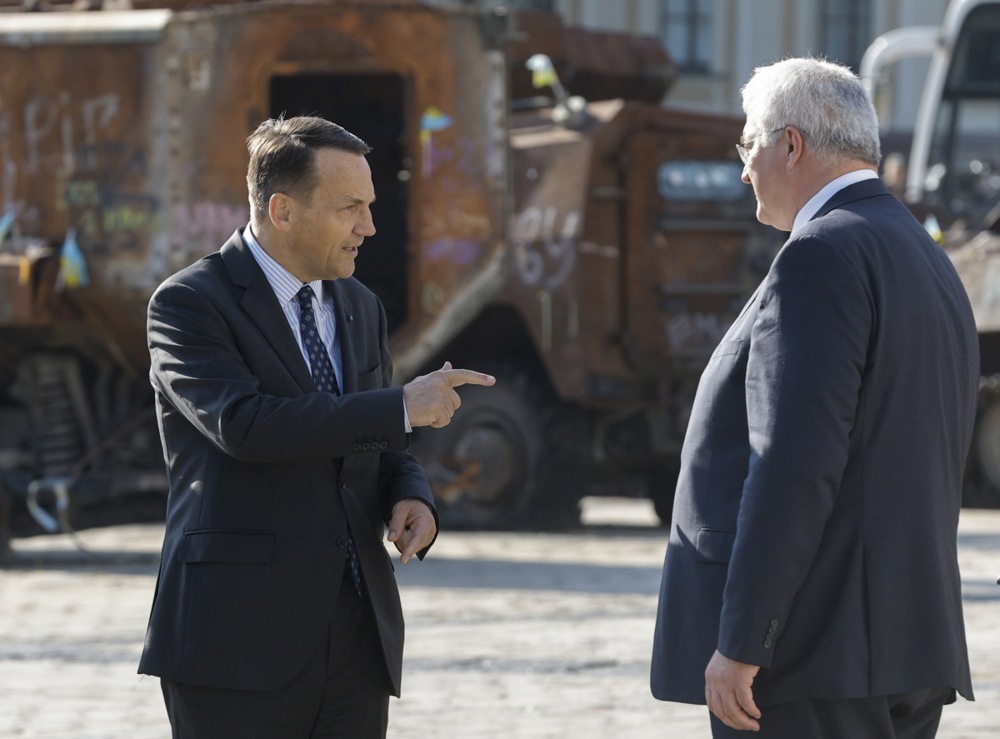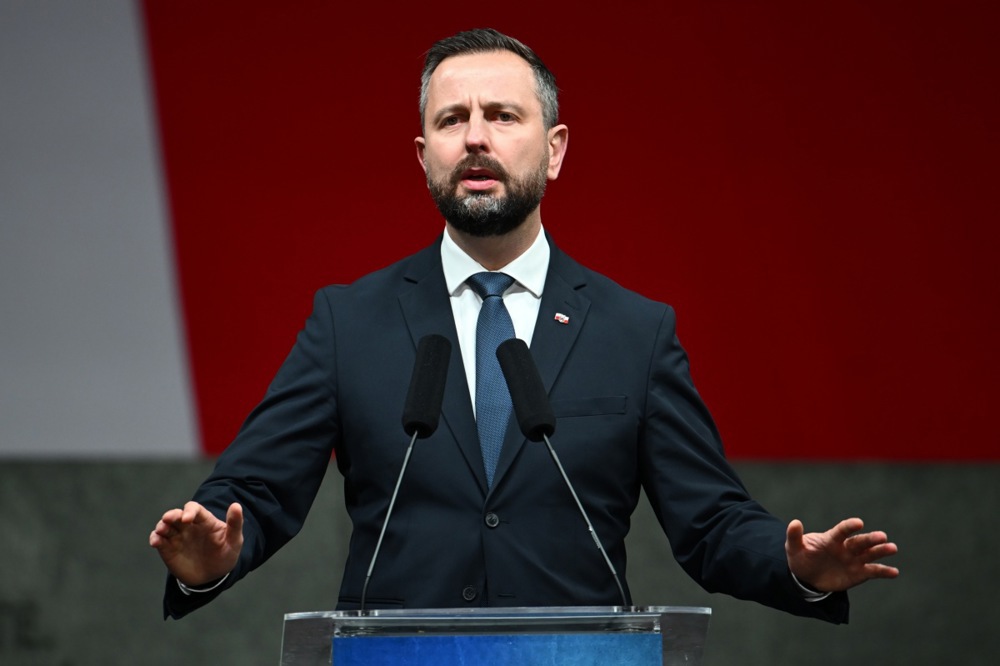Polish foreign minister Radosław Sikorski has asked Ukraine to pay Polish victims of the Second World War Volhynia massacre the same respect it has paid to Germany whose fallen Wehrmacht soldiers have been exhumed in Ukraine.
Ukraine has over the past few years suspended the exhumation of the 40,000-60,000 Polish victims of the Volhynia slaughter that took place in the 1940s. The killings were perpetrated by Ukrainian nationalists. The expatriation of the remains of German soldiers who were killed on Ukrainian territory during the Second World War continues to be allowed.
Sikorski made his remarks at the University of Toruń on October 13 during a lecture about the European Union.
“I have one request to make of the Ukrainians. Please treat the victims of the Volhynia massacre on par with Wehrmacht soldiers who have been exhumed and given a Christian burial,” he said, adding that was in Ukraine’s interests, given its application to join the EU.
The minister noted that “with regard to the exhumation of the victims of Volhynia we have a consensus in Poland. It is not a political matter, nor a subject for horse trading. It is a Christian duty”.
He pointed out that Poland had not made the exhumation of German soldiers who died during the war on its territory an issue.
“We did not try to cut deals over this with Germany, we simply allowed them to exhume and bury their fallen soldiers,” the minister said.
Sikorski reminded Ukraine it let the Germans do the same for their soldiers on its territory.
“Ukraine during the last decades has allowed for the exhumation and burial of over 100,000 Wehrmacht soldiers, and rightly so,” he said.
He said that was why he called on the Ukrainians to “treat the victims of the Volhynia massacre with the same respect afforded to the Wehrmacht soldiers”.
“The quicker the Ukrainian side does this the faster this thorny issue can be removed from our bilateral relations and will not be an obstacle in the process of Ukrainian accession to the EU.”
The Volhynia massacre took place in July 1943 when the Ukrainian Liberation Army (UPA), which was the military arm of Stepan Bandera’s Ukrainian nationalist movement, attacked 150 Polish communities. Many were targeted while going to Sunday mass.
The Ukrainian nationalist action was in essence an attempt to ethnically cleanse Poles from Ukrainian territories.
Despite constant pressure from the Polish side and the military and humanitarian support given to Ukraine by Poland, Kyiv has refused to allow exhumations. Ukraine has, though, called on Poland to take care of the memorials to fallen Ukrainian nationalists who died on what is today Polish territory.
Sikorski, during a recent visit to Kyiv, was reported to have clashed with Ukrainian President Volodymyr Zelensky over the same issue.
Polish politicians such as the Conservative (PiS) leader Jarosław Kaczyński and the leader of the Polish People’s Party (PSL) Władysław Kosiniak-Kamysz have gone on record saying that Ukraine will not enter the EU until it officially acknowledges the crimes committed during the Second World War by Bandera’s nationalists.





